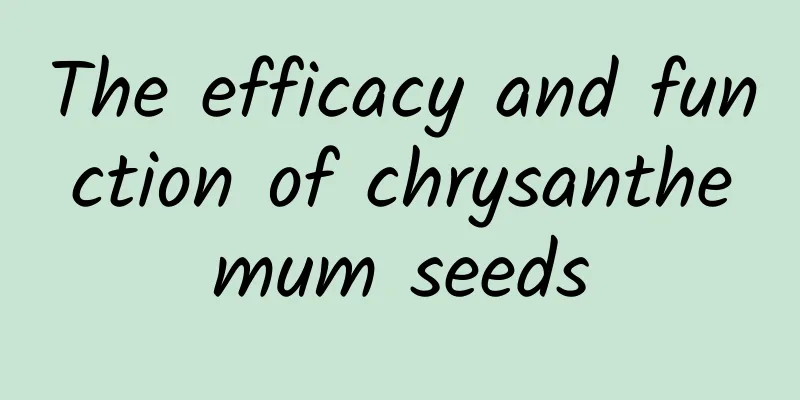What are the effects of ground bone bark

|
Traditional Chinese medicine culture is extensive and profound, among which traditional Chinese medicine is the main treatment method. It is often used by people in life. It is also widely recognized and trusted by people because of its significant advantages such as high safety and good efficacy. So what are the effects of Rehmannia glutinosa? Rehmannia glutinosa has high medical value and can be used as a medicine in many traditional Chinese medicine prescriptions. Moreover, its effects and functions are also reflected in many aspects. Nature and flavor: cold in nature, sweet in taste. Functions and indications: Cools blood and eliminates steaminess, clears the lungs and reduces fire. It is used for hot flashes due to yin deficiency, night sweats due to bone steaming, cough due to lung heat, hemoptysis, and epistaxis. Internal heat and thirst. Rehmannia root is the root of wolfberry. The southern ones are less bitter and slightly sweet and spicy, while the northern ones are very bitter and of inferior quality. Only the southern ones are the best for use as medicine. It is pungent and cold in nature, good at entering the blood, and is most suitable for those who have heat in the yin part of the marrow but not due to wind-cold. This substance is cool but not harsh, and can cure fatigue. It has a light and spicy taste, so it can also clear the lungs. Rehmannia root bark can eliminate the fixed evil externally, eliminate sweat and bone steaming internally, regulate headaches, remove chest and flank qi, and benefit the large and small intestines. It is effective in alleviating constipation. It is combined with Xiebaisan to clear away metal and regulate qi, and treat cough caused by excess lung heat. It can be used together with blood-nourishing medicine to strengthen yin and relieve muscles, and regulate acne and dry skin. Because of its extremely cold nature, decocting two liang of it with wine is most effective in treating jaundice caused by damp-heat. Peony bark can remove heat from the blood, while Rehmannia root bark can remove heat from the qi, so they should be used separately. Rehmannia root bark is not comparable to Phellodendron chinense and Anemarrhena asphodeloides. Although Rehmannia root bark enters the kidney, it does not cool the kidney. It only enters the kidney and cools the bones. Cooling the kidney will inevitably drain the kidney and hurt the stomach, while cooling bones can benefit the kidney and produce marrow. Phellodendron chinense and Anemarrhena asphodeloides can drain the kidney and hurt the stomach, so they must not be used too much to cause failure. Rehmannia root bark benefits the kidney and produces marrow, so it must not be used too little to achieve results. To relieve symptoms of Yin deficiency, fire movement, bone steaming and fever, use Yin-tonifying medicine and add five cents or one ounce of Rehmannia root bark to cool the marrow in the bones and remove the heat in the bones. Danxi said that the reason why Rehmannia root bark can cure wind is that it treats both the liver and the kidneys. If there is heat in the liver, it will generate wind, which is different from the wind caused by exogenous factors. When the heat subsides, the wind will subside. Rehmannia root bark is not originally a medicine that enters the liver. Danxi said so because the liver and kidney are in the same position and should be treated at the same time. Since Rehmannia root bark can reduce the virtual heat in the kidney, the dragon fire will not be too strong and the thunder fire will also be calmed. It can naturally calm the wind caused by liver heat. Although it does not enter the liver meridian, it can also treat liver wind. Through the above introduction, everyone has a clear idea of the effects of Rehmannia glutinosa. Any Chinese herbal medicine must be used correctly and cannot be taken without the doctor's consent. |
<<: What are the effects of geranium
>>: What are the methods of soaking Atractylodes macrocephala in white vinegar?
Recommend
The efficacy and function of the parasol pearl
Speaking of the Parasol Pearl, I believe many fri...
There is a long white thread coming out of my eye. What is it?
Source: Dr. Curious The cover image and the images...
Save your life! What should I do if I get frostbite in Harbin?
Review expert: Zhang Yuhong, chief physician of t...
It "broke up" Xiaolongnu and Yang Guo, and you may have it at home
Anyone who has seen The Return of the Condor Hero...
The efficacy and function of chicken mulberry leaves
The world is full of wonders, and Chinese medicin...
Several bald spots appeared on my head overnight. Is alopecia areata really "alopecia areata"?
Actress Shen Mengchen once posted a Weibo post sa...
Quantum communication: an important guarantee for the future autonomous and controllable information security ecosystem
"Quantum" is already a hot research fie...
The efficacy and function of Mongolian almond
Mongolian almond is a very common type of traditi...
Lunar back sampling, intelligent rockets... 2024 China Space "Spoiler" | Expo Daily
2024 China Space Program Spoilers On February 26,...
The efficacy and function of stone tea
Stone tea is a medicinal material and is quite co...
Oil lives in a nanoscale "bedroom"? Let's take a look at the "close-up" of shale magnified a million times
The Daqing Oilfield core library is filled with n...
Global Science News | List of Highly Cited Scholars in 2021 Announced
· the scientist· Clarivate Analytics announces 20...
Counting the number of "hickeys" on the body of stingrays? Scientists are not idle
Whenever the breeding season of manta rays comes,...
Protein factories: Using the power of evolution to defeat the enemy
Evolution has played a vital role in the billions...









